Keywords: Christmas Island
-
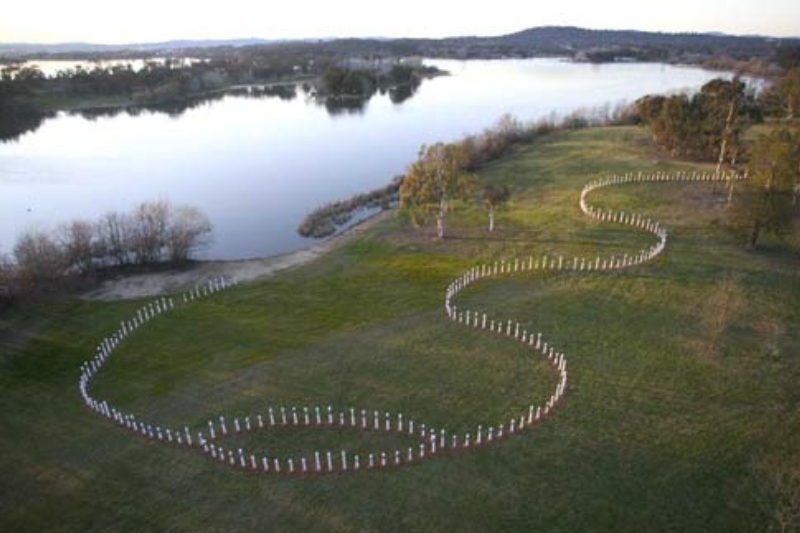
INTERNATIONAL
- Binoy Kampmark
- 01 November 2021
38 Comments
Two decades ago, an Indonesian vessel given the name SIEV X sank with loss of life that should have caused a flood of tears and a surge of compassion. Instead of being seen in humanitarian terms, the deaths of 353 people became a form of rich political capital, placed in the bank of opportunism to be amortised at a federal election.
READ MORE 
-

ARTS AND CULTURE
- Andrew Hamilton
- 26 October 2021
4 Comments
These weekday mornings all is quiet. / I stroll across the highway, / a piddle of cars in the outbound lane, / a puddle at the distant lights. / Along the parkland trail / cowled figures walk alone, / measuring their distance. / From the rise above the railway cutting / Macedon stands burly in the smoke-free air.
READ MORE 
-
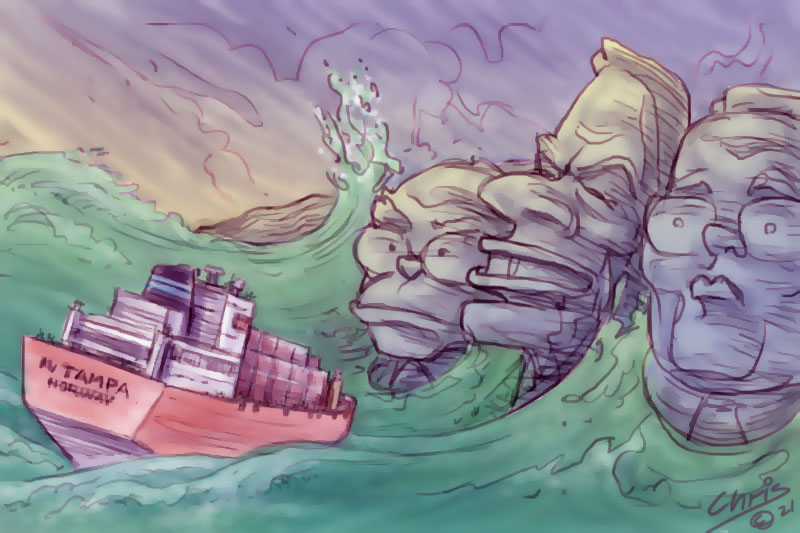
INTERNATIONAL
- Binoy Kampmark
- 07 September 2021
23 Comments
It took 438 desperate human beings upon the overladen wooden fishing boat, the KM Palapa, to present Australia’s Howard government in August 2001 with an electoral opportunity. At first, there was feigned ignorance from Canberra about any signs of desperation. The vessel, lacking power, lay some 100km off Christmas Island. Despite a coast guard plane noting men jumping up and down on the roof in a frenzy, nothing was initially done.
READ MORE 
-
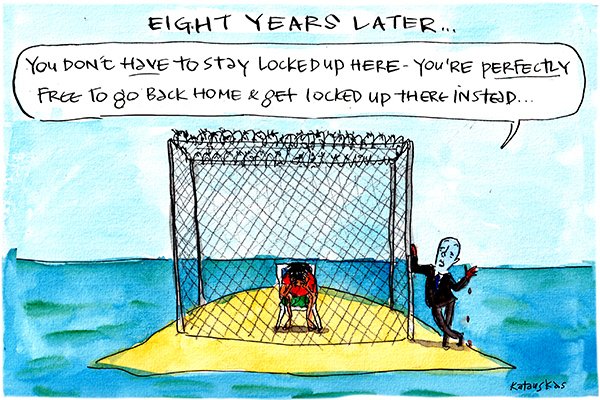
CARTOON
- Fiona Katauskas
- 21 July 2021
1 Comment
READ MORE 
-

AUSTRALIA
- Binoy Kampmark
- 24 June 2021
27 Comments
The Murugappan family have found themselves in the middle of this nasty tangle, their fates politicised and manipulated.
READ MORE 
-
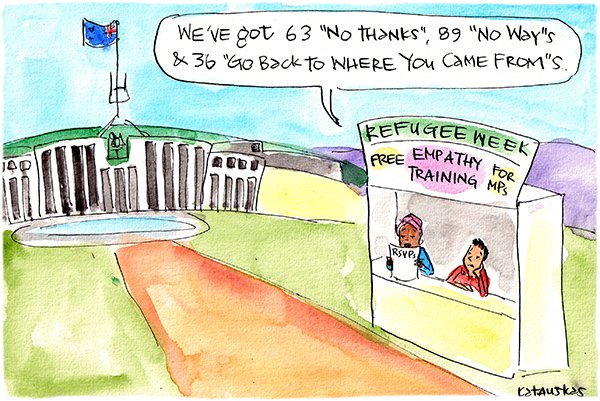
AUSTRALIA
- Andrew Hamilton
- 24 June 2021
32 Comments
Deterrence has an inner logic that we can see in Australian treatment of people who seek protection. In the first place it tends to become increasingly brutal. Each breach of policy must be met with a more effective deterrent.
READ MORE 
-
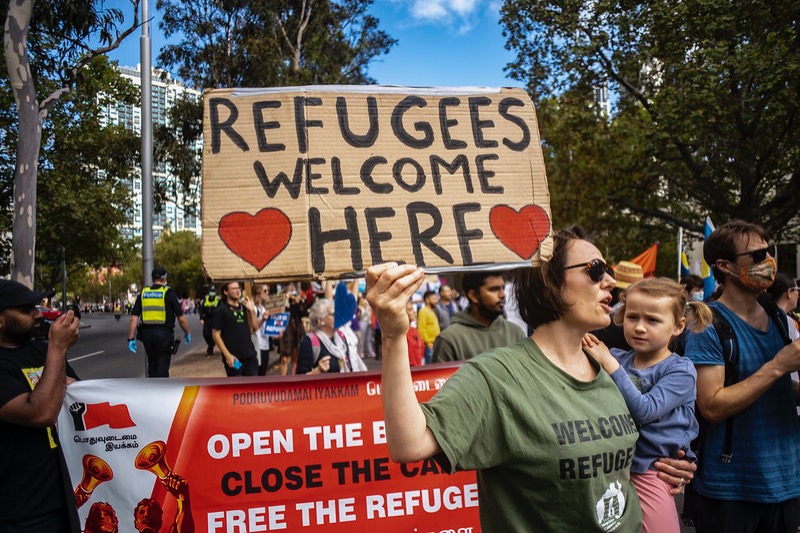
FAITH DOING JUSTICE
- Vincent Long Van Nguyen
- 24 June 2021
15 Comments
With the average length of detention in Australia now at an historic high, it is timely to review how immigration detention is used. It should be a last resort that is used for the shortest practicable time so that people who pose little risk to the community are not unnecessarily deprived of their liberty, and that they are able to contribute to the community.
READ MORE 
-

AUSTRALIA
I was born Hazara in Afghanistan. It is a place where my people suffer constant persecution and discrimination, and additionally, where women are considered second-class citizens. When I was two years old, my parents fled Afghanistan. We first arrived in Iraq and were subsequently given refugee status in Iran. Despite the challenges of growing up a foreigner in Iran, I completed my teaching degree, and also qualified to be a lawyer.
READ MORE 
-
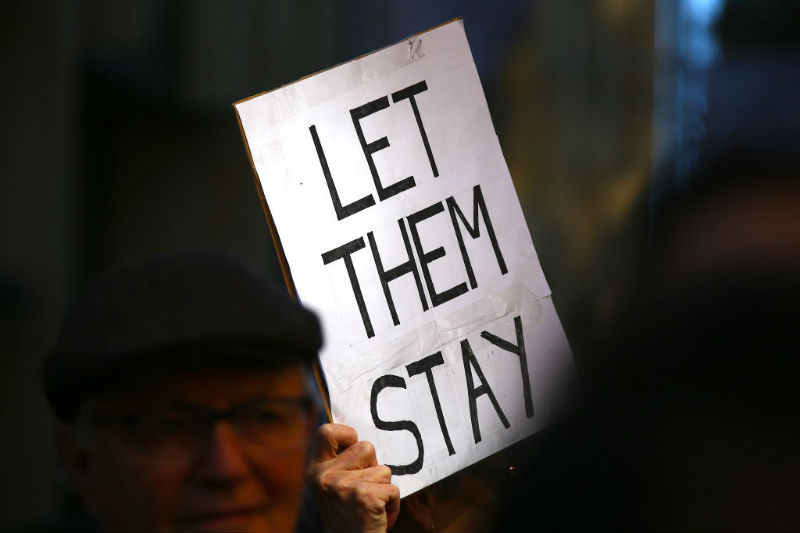
AUSTRALIA
- Andrew Hamilton
- 17 June 2021
23 Comments
The present climate offers little encouragement for people anyone who cares for refugees and wants to press their cause. It would be rash to think that things will change soon.
READ MORE 
-
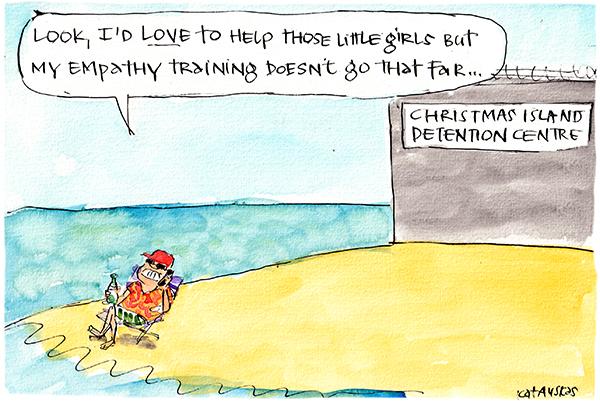
CARTOON
- Fiona Katauskas
- 08 June 2021
2 Comments
READ MORE 
-
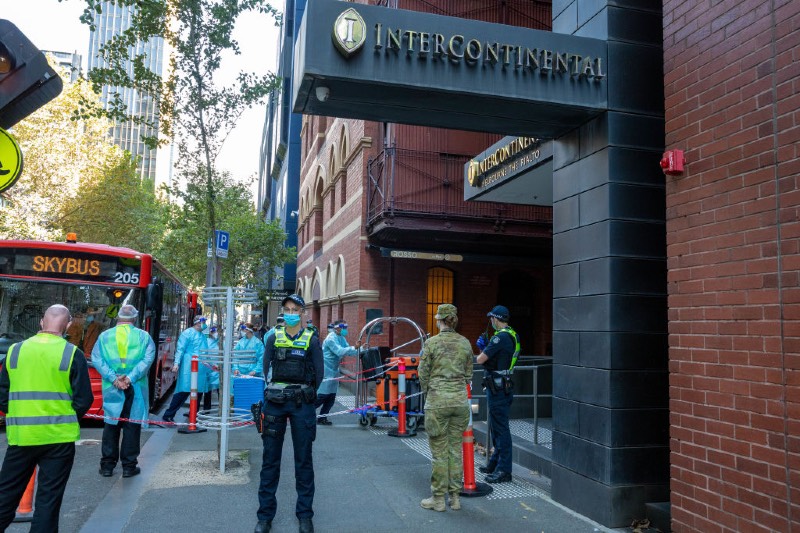
INTERNATIONAL
- Binoy Kampmark
- 11 May 2021
10 Comments
While the ban is unique in its severity, it is not divorced from a broader tendencies as to how citizenship has been appraised during pandemic times. Public health and safety have been prioritised over the standard liberties associated with citizenship.
READ MORE 
-

CARTOON
- Fiona Katauskas
- 27 April 2021
READ MORE 